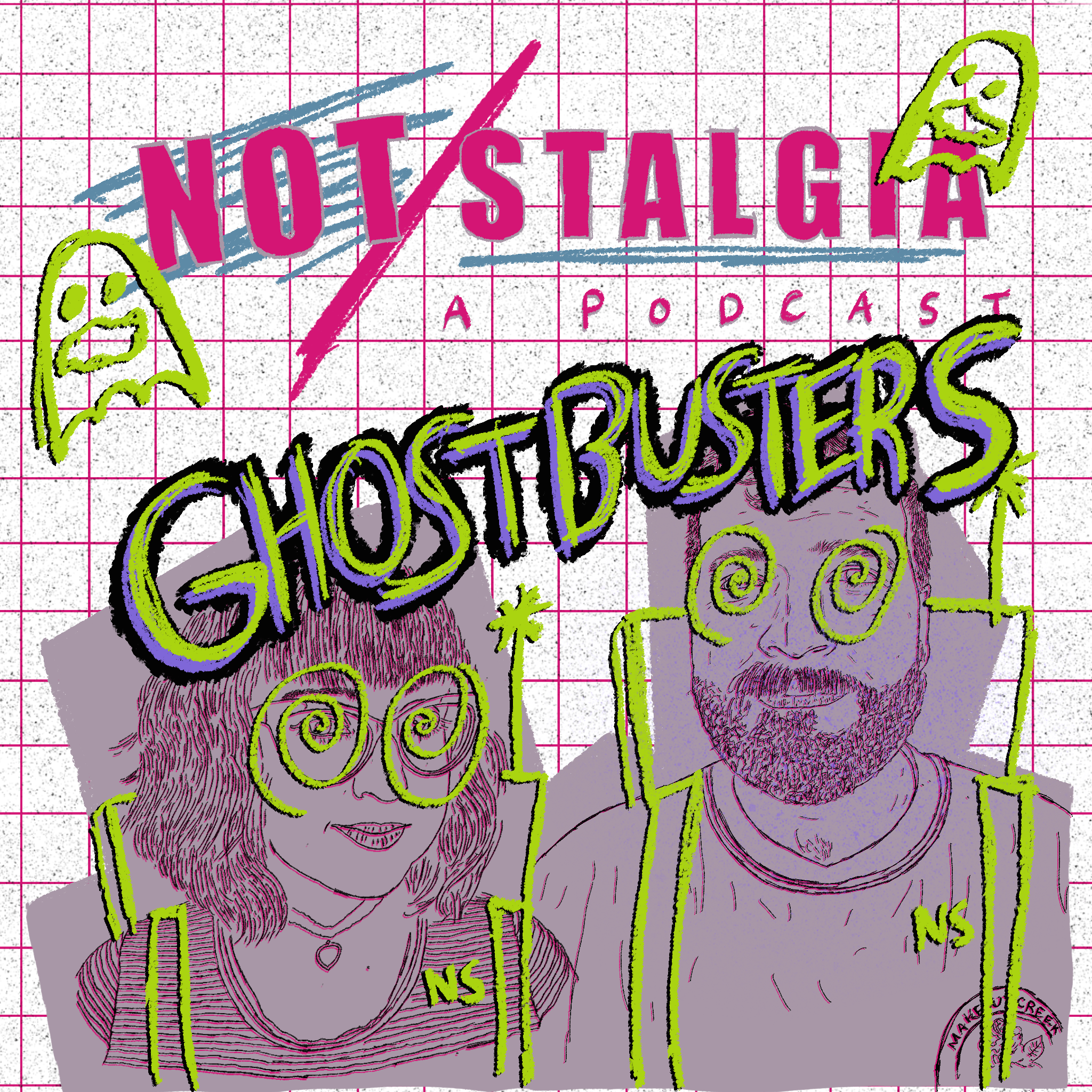This week we are joined by Alex Botkin and take a look at Annie (1982 & 2014) to examine the political implications of the song “Tomorrow”, cyclical abuse, the dismissal of the needs of other orphans besides Annie, blind casting, and the hot mess or a character that was Cameron Diaz’s Ms. Hannigan.
Read MoreThis week we explore Jumanji (1995) & Jumani: Welcome to the Jungle (2017) and discuss the effects of trauma, the importance of relying on others for support, harmful stereotypes, & Robin Williams' legs.
Read MoreThis week we are joined by guest Shelby Murray and look at two iterations of Freaky Friday (1976 & 2003) to examine the lack of masculine accountability, harmful misrepresentations of mental health issues, racial othering through grotesque stereotypes, and uncool daddy fantasies.
Read MoreThis week we examine the Swedish film Let The Right One In (2008) and the American remake Let Me In (2010) to discuss cyclical violence, intentional depictions of androgyny, nuance versus explicitness, and how American audiences would be better off if they just read subtitles.
Read MoreThis week we visit the futuristic world of Blade Runner (1982) and Blade Runner 2049 (2017) to explore the queer connotation of replicants, the power of memories, the humanity of technology, and Jared Leto being a gross boy.
Read MoreThis week we take a look at the 1976 and 2018 iterations of A Star Is Born and discuss the romanticizing of instant stardom, systemic forms of misogyny, the improvisational skills of drag queens, and how men need to keep their goddamn hands to themselves.
Read MoreThis week we head over to Verona to examine the classic love story of Romeo & Juliet (1968) and modern adaptation Romeo + Juliet (1996) and discuss generational conflict, the absence of female voices, patriarchy (always...), Mercutio, & Leonardo DiCaprio's perspiration issues.
Read MoreThis week we float over to London to look at Mary Poppins (1964) and Mary Poppins Returns (2018) and discuss systemic economic inequality, an extremely patronizing view of feminism, the importance of showing male emotional vulnerability, and tuppence.
Read MoreThis week we head over to early 1960’s Baltimore to examine Hairspray (1988 & 2007) and discuss the effects of racial prejudice, the journey to being an ally, creating with intent, and the horror that is Jonathan Travolta.
Read MoreThis week we head over to early 1960’s Baltimore to eThis week we switch up the formula a bit and look at the 1990s television series Rocko's Modern Life and its return in the form of the special Rocko's Modern Life: Static Cling (2019) to discuss toxic fandom, recognition of identity, acceptance of change, and the power of staying positive in the most dire of situations.xamine Hairspray (1988 & 2007) and discuss the effects of racial prejudice, the journey to being an ally, creating with intent, and the horror that is Jonathan Travolta.
Read MoreThis week we travel all the way to Whoville to examine How The Grinch Stole Christmas (1966 & 2000) and The Grinch (2018) and discuss othering, consumerism, the value of a real apology, and why Cindy Lou Who is a true punk rock queen.
Read MoreThis week we jump into Judge Dredd (1995) and Dredd (2012) and discuss mental abuse, cop culture, Laaaaaww (obvi), and how everyone just needs to chill out and have a good cry.
Read MoreThis week we are joined by our first ever guest, our editor, Danny Barkley, examine Tron (1982) and the long awaited sequel Tron Legacy (2010) and discuss tech startup culture, colonialism, mansplaining, and the anti-millennial rhetoric of the digital world.
Read MoreThis week we take a look at the original Ghostbusters (1984) and the recent female driven reboot (2016) and discuss toxic masculinity, female friendship, believing victims of trauma, and how bad editing can take down an otherwise good movie.
Read MoreThis week we take a look at The Wolf Man (1941) & The Wolfman (2010) and discuss their portrayal of generational trauma, mental illness, patriarchy (always), and hitting on your dead brother's wife: a love story.
Read MoreFor our first episode, we dive into The Mummy (1932, 1999, & 2017 versions) to discuss how the story has changed--or not changed--over the years. We look at some of the films' troubling themes, such as the role of women, the treatment of minorities, and actual mummy himself, Tom Cruise.
Read More















